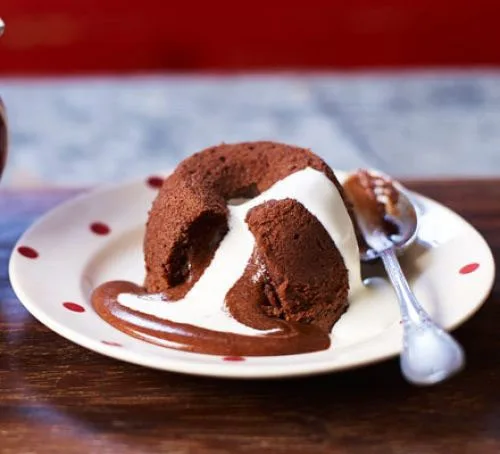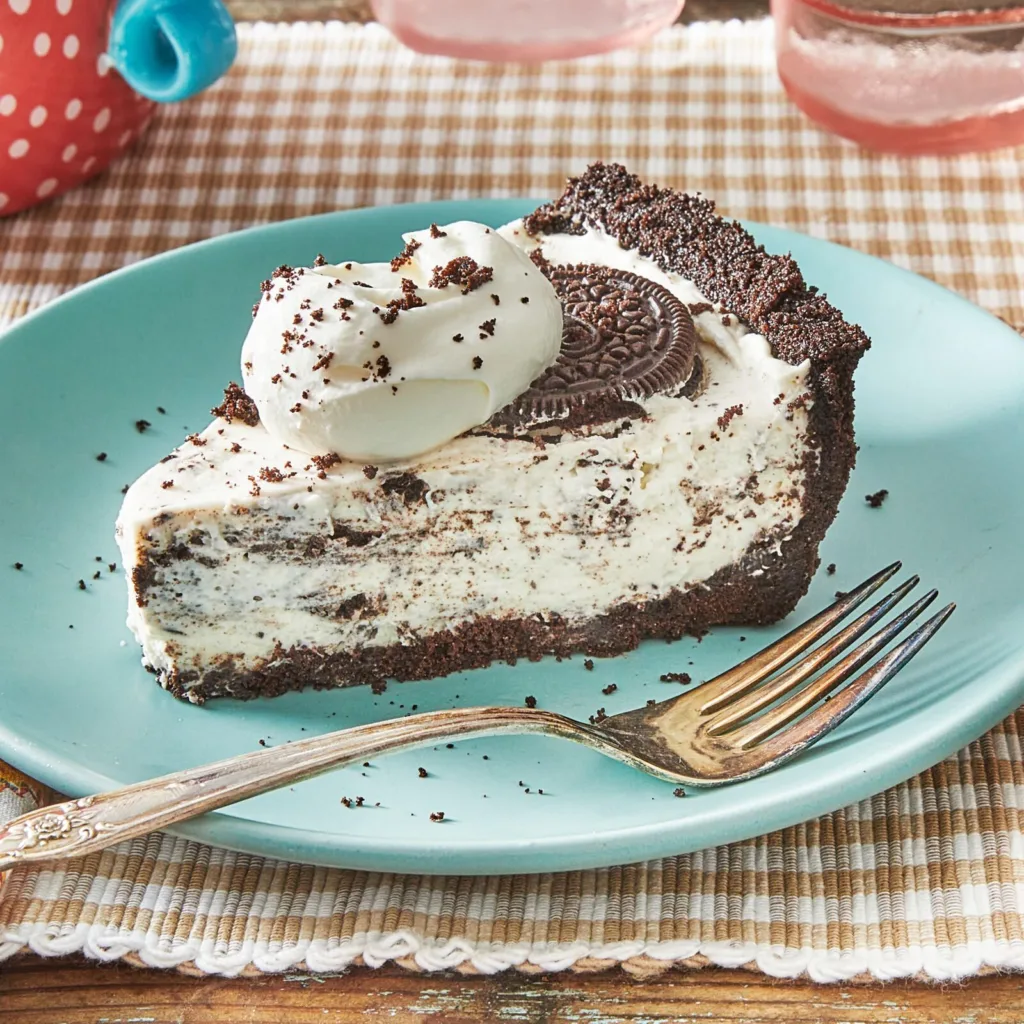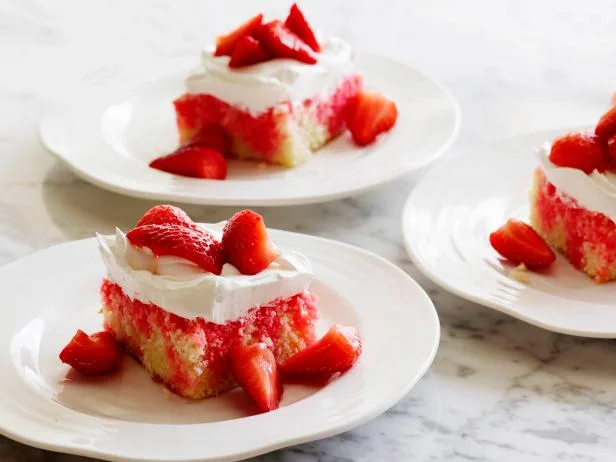Indulging in desserts often comes with a side of guilt. But the truth is, the connection between desserts and weight loss is more nuanced than people think. Enjoying sweets in moderation may actually support your weight loss goals – surprising, but true!
The Allure of Desserts
Desserts entice our taste buds and excite our senses. Their sweet taste, irresistible textures, and mouthwatering aromas make desserts a beloved treat worldwide. We link desserts to celebration, comfort, and reward. It’s no wonder we find it hard to pass up cake, cookies, or ice cream.
For many, dessert is the best part of any meal. Knowing it’s coming motivates us to eat our vegetables and finish our entrée. Just picturing cheesecake or chocolate chip cookies releases feel-good brain chemicals like dopamine. Desserts hold powerful motivational power over our minds and eating habits.

The Common Misconception
With low-carb, no-sugar diets so popular, desserts are seen as the ultimate diet villain. We hear that cutting sweets is necessary for weight loss. But this black-and-white view overlooks how desserts can be part of a balanced diet. Vilifying all sweets often backfires, causing binges when willpower runs thin.
The media and diet industry promote an anti-dessert mentality with alarmist messaging like “Sugar is toxic!” or “Ban sweets to slim down fast!” Celebrities flaunt extreme sugar-free diets as the reason behind their figures. But for everyday folks, denial and restriction are rarely sustainable solutions. The key? Learn to integrate treats into your eating plan in a balanced, healthy way.
The Intriguing Connection
New research reveals fascinating links between desserts and weight loss success. While high in sugar and calories, desserts in moderation may support long-term weight goals. Understanding desserts’ effects is pivotal to harnessing their weight loss potential.
Studies find participants who regularly enjoy small treats like chocolate or cookies in moderation are more likely to stick to their diet and lose weight compared to those who cut out sweets entirely. Planned indulgences seem to aid satisfaction. Deprivation often backfires, while scheduled, modest treats give us something to look forward to and prevent bingeing.
Interestingly, researchers have also found associations between dessert intake and lower BMIs. Overeating sweets can cause weight gain, but incorporating them into an overall balanced diet doesn’t appear to hinder weight loss. How? It comes down to how desserts are consumed, like limiting portions and balancing them with wholesome meals and snacks.

The Science Behind Sweetness
To understand desserts’ influence on weight, we must examine sugar’s effects on the body and appetite.
Sugar and Weight Gain
It’s true – overdoing sweets can lead to weight gain in two key ways:
Spiking Blood Sugar
Simple sugars quickly enter the bloodstream, spiking blood glucose. The insulin surge that follows drives fat storage and hunger. Over time, blood sugar spikes strain the body and can lead to insulin resistance.
Causing Insulin Resistance
A high-sugar diet can create insulin resistance. This reduces insulin sensitivity, causing excess glucose to circulate in blood. When cells fail to absorb glucose properly, the body converts and stores that excess sugar as fat. Insulin resistance is closely tied to obesity and type 2 diabetes.
However, sugar alone doesn’t automatically cause weight gain. The amount consumed and your metabolic health determine the effects. Consuming too many desserts and sweets crowds out nutritious foods. Keeping added sugar under 10% of total daily calories is recommended.
It’s also key to understand that not all sugars are equal regarding impact on blood sugar and weight. Complex carbs and whole foods with natural sugars rarely spike blood glucose. Fruit contains fructose but is fine in moderation. On the other hand, added sugars in sodas, candy and processed desserts rapidly increase blood sugar.
Why We Crave Sugar
Sugar also drives cravings by interacting with the brain.
The Dopamine Rush
Eating sweets releases dopamine, our “feel good” neurotransmitter. We’re wired to desire sugar because it provides instant energy. Dopamine reinforces sugar’s reward value by flooding the brain with pleasure when we eat something sweet.
Emotional Eating
Today, sugary foods are commonly used to cope with stress, anxiety, sadness and other unpleasant emotions. While it provides temporary distraction and mood lifts, emotional eating can easily lead to overconsumption.
Again, sugar alone isn’t to blame. By understanding its role in cravings, we can enjoy sweets without going overboard. Problems arise when we use sugar to self-soothe rather than address issues directly or seek healthy outlets like exercise, relaxation, connecting with others, or building self-esteem.

Desserts vs. Sweets: Key Distinctions
Not all sugary foods are equal when it comes to nutrition and health impact. Distinguishing desserts from other high-sugar foods is important.
Types of Desserts
There are two main dessert categories:
Traditional Desserts
This includes cakes, pies, cookies, ice cream, and chocolate. Though high in sugar, these are fine in moderation. Making smart swaps further boosts nutrition, like using whole grains, less fat/oil, low-fat dairy, and natural sweeteners.
Healthy Alternatives
Think fruit-based desserts, yogurt parfaits, dark chocolate, and options made with wholesome natural sweeteners. These provide more nutritional value thanks to ingredients like fruit, nuts, yogurt, oats, coconut and avocado.
Understanding Sweeteners
Knowing different sweeteners’ impacts also helps.
Natural vs. Artificial
Natural sweeteners like honey and maple syrup contain antioxidants, minerals, and modest nutritional benefits. Though still high in sugar and calories, they are better than artificial sweeteners.
Artificial sweeteners like aspartame lower calorie content but may have negative health effects over time. They also don’t properly satisfy cravings or promote fullness.
Glycemic Index
This measures how quickly blood sugar rises after eating carbs. Desserts made with low glycemic sweeteners like agave have less impact on blood glucose compared to desserts with plain white sugar.

Portion Control and Mindful Indulgence
You don’t have to avoid desserts completely. With mindful indulgence and proper portions, desserts can be part of a healthy lifestyle.
The Importance of Moderation
Sticking to reasonable serving sizes is key for balancing sweet treats. Here are some tips:
- Follow suggested serving sizes, and halve high-calorie dessert recipes. Often a small 1-2 bite amount of a rich dessert satisfies a craving.
- Share dessert when dining out. Many restaurant portions are too large for one person. Ask for extra plates and split a treat with friends.
- Use mindful eating techniques like savoring each bite slowly and pausing halfway to check fullness cues. Eat desserts from a small plate or bowl.
Moderation allows you to indulge without overconsumption. Listen to your body’s satisfaction signals.
Balanced Dessert Choices
Picking more nutritious options ensures desserts are a healthy diet addition.
- Incorporate fruit for antioxidants, fiber and nutrients. Berries add natural sweetness to various desserts.
- Look for recipes with nutrient-rich ingredients like yogurt, oats, nuts, seeds, coconut, whole grains, and nut butters. These make desserts more filling.
Desserts as Rewards
Used strategically, desserts can support weight loss through positive reinforcement. Here’s how:
Positive Reinforcement
Desserts are powerful motivators. Use them as effective rewards for healthy behaviors.
- Enjoy a treat after hitting exercise, nutrition or weight loss goals. Use it to acknowledge progress and boost motivation. Even small accomplishments deserve a reward!
- Scheduled, intentional indulgences prevent feelings of deprivation. Having a dessert to look forward to provides an emotional lift.
Tips for Healthy Rewards
For best success, implement these reward system tips:
- Rotate food rewards with non-food treats like a bubble bath, movie night, or leisure time. This prevents overreliance on sugary foods for dopamine.
- Balance sweets by pairing them with something healthy, like eating dessert after a workout. This links desserts to positive actions.
- Allow occasional spontaneous indulgences. This makes your eating plan more flexible, sustainable and enjoyable long-term.
Dessert Recipes for Weight Watchers
Find healthier recipes that satisfy your sweet tooth when cravings hit. Here are nutritious dessert ideas perfect for any weight loss plan:
Low-Calorie Desserts
Enjoy sweetness without excess calories using these light options:
- Toss fresh fruit with plain Greek yogurt. Sprinkle with cinnamon for a protein-packed treat.
- Melt 70% cacao dark chocolate and dip strawberries for an antioxidant-rich snack.
- Blend Greek yogurt with pureed fruit then freeze into refreshing popsicles.
- Blend ripe avocado with cocoa powder, honey and non-dairy milk for creamy, chocolatey mousse.
Nutrient-Rich Desserts
These provide extra nutrition including protein, fiber, healthy fats:
- Layer Greek yogurt with fresh fruit and top with nuts, chia seeds or coconut.
- Bake apples with oats, nuts and seeds for a fiber-filled crumble.
- Blend frozen bananas into soft serve texture then top with berries or chocolate.
- Smear peanut or almond butter onto apple slices for a snack with protein and fiber.
Healthy Portion Tips
Keep portions in check with these simple suggestions:
- Cut baked goods like brownies and cakes into bite-sized pieces. Limit yourself to 1-2 pieces to satisfy your craving.
- Dish out small scoops of ice cream in a bowl instead of eating straight from the carton.
- Buy mini dark chocolate bars and allow yourself just 1-2 squares after dinner.
- Scoop fruit crumbles and pies into small ramekins for built-in portion control.
- Share dessert when dining out. Split the treat with friends by asking for extra plates.
- Pre-portion snack bags with chocolate chips or nuts to prevent mindless overeating.
Conclusion
The bottom line? With mindful enjoyment, nutritious ingredients and proper portions, desserts can support weight loss goals. Rethink your relationship with sweets by finding balance between indulgence and nutrition. Discover how desserts in moderation offer surprising benefits for your weight loss journey.
Don’t miss out on more tips for healthy eating, nutrition, wellness and weight loss! Subscribe to our free newsletter for regular updates. Check our blog for related posts to keep making progress toward a healthier lifestyle.
Thank you for reading this post, don't forget to subscribe to our free newsletter
!
